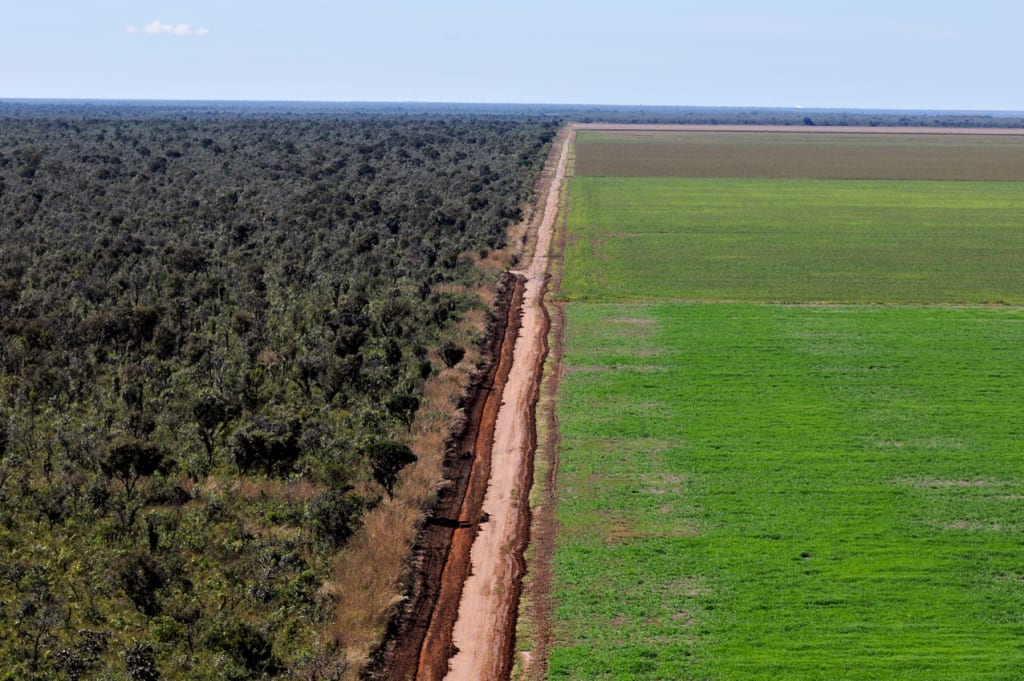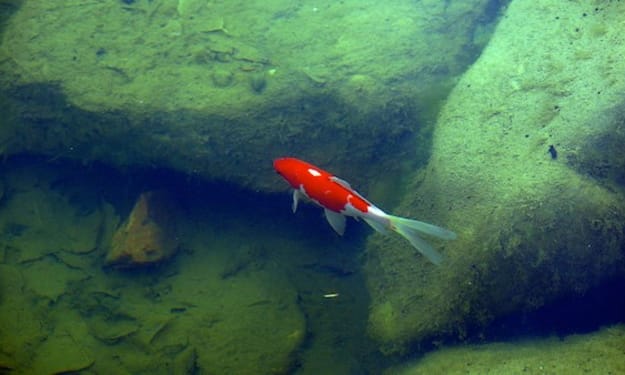The Monoculture Menace
How Single-Crop Farming is Hurting Wildlife and Us

Imagine driving past fields that stretch as far as the eye can see, all growing the same crop. It might look impressive, but underneath, a disaster is brewing. Monoculture farming—growing just one type of crop over huge areas—is causing big problems for wildlife and people alike. This farming practice might seem efficient, but the long-term consequences are scary, and it's time we faced them head-on.
Think of a world where you no longer hear bees buzzing, birds singing, or see butterflies around. Monoculture farming is making this sad picture a reality. By planting only one type of crop, we’re creating huge areas with hardly any variety of plants, which is terrible news for wildlife.
Bees and butterflies, which are crucial for pollinating plants, can’t find enough food in these single-crop fields. As their numbers drop, so does the variety of plants, causing a domino effect that threatens many other species. Insects are disappearing fast, and since they’re a key part of the food chain, this spells trouble for birds and other animals that depend on them for food.
Birds are also struggling. With fewer insects to eat and their natural habitats destroyed, many bird species are on the brink of extinction. Birds help control pests and spread seeds, so their decline messes up entire ecosystems. As these animals vanish, the natural balance is thrown off, creating a chain reaction of negative impacts.
The problems with monoculture farming don’t stop with wildlife—they come right to our doorsteps. To keep these single-crop systems going, farmers use lots of chemical pesticides and fertilizers. These chemicals can contaminate the soil and water, making them dangerous for us.
These toxic substances don’t just stay on the farm. They can end up in the water we drink and the food we eat, posing serious health risks. Long-term exposure to these chemicals is linked to cancer, hormone problems, and even brain disorders. People living near big monoculture farms often suffer the most, facing higher rates of illnesses and birth defects. But with our global food system, everyone is at risk.
Monoculture farming also destroys soil health. Growing the same crop over and over drains the soil of nutrients, turning it into lifeless dirt that can’t support healthy plants. This means the food grown in these soils is less nutritious. To keep yields up, farmers use even more chemicals, creating a vicious cycle of soil degradation and pollution.
So, why did we choose this harmful way of farming? It boils down to our obsession with efficiency and profit. Monoculture farming promises high yields and big profits, but it ignores the long-term damage to our environment and health.
Big corporations are a big part of the problem. Companies that make pesticides and fertilizers push monoculture because it makes them money. Farmers often have no choice but to grow the same crops year after year, especially since seed markets are controlled by a few big players.
We’re running out of time. We must change our farming practices to protect our planet and ourselves. Sustainable methods like crop rotation, agroforestry, and organic farming are better alternatives. These practices support biodiversity, improve soil health, and create a more balanced ecosystem.
We can all help by making informed choices. Supporting local, organic farms and demanding transparency about how our food is grown can drive change. Governments also need to step up by promoting sustainable farming and discouraging harmful practices.
The monoculture menace is another wake-up call. The decisions we make today will shape the future of our planet and the lives of future generations. We need to act now before the fields of monoculture become barren wastelands. It’s our responsibility to make a change!
About the Creator
Victor VinaHell
Hello! I'm Victor, an artist dedicated to sharing eco-information and some other random stuff! Through my articles, I aim to inspire and empower you to make changes that create a big impact on our planet. We can build a better world!
Enjoyed the story? Support the Creator.
Subscribe for free to receive all their stories in your feed. You could also pledge your support or give them a one-off tip, letting them know you appreciate their work.






Comments (2)
Thank you for sharing.
Liked your work.